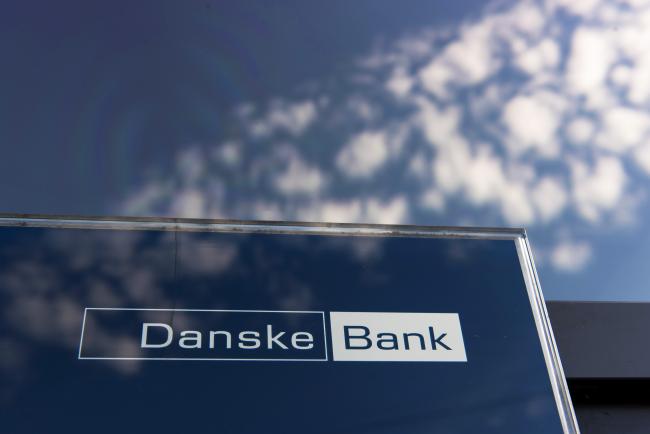(Bloomberg) -- Danske Bank A/S is pulling out all the stops to win back trust and protect its business after finding itself embroiled in one of Europe’s worst ever money laundering scandals.
Denmark’s biggest bank used Thursday to assure investors it has the financial strength to absorb “large” fines as it awaits the outcome of multiple criminal investigations. Danske also revealed a long list of measures designed to fight financial crime, in an effort to stop clients fleeing the bank in anger, and even said it will reconsider its bonus arrangements.
Investors welcomed the update, and shares in Danske gained as much as 6.5 percent in Copenhagen, marking the bank’s best performance since February 2016.
Back in September, Danske shocked its investors and clients when it admitted that much of about $230 billion that flowed through a tiny Estonian unit might need to be treated as suspicious in origin. Management is in an ongoing dialogue with authorities in the U.S., Denmark and Estonia in connection with criminal investigations into the case.
Interim Chief Executive Officer Jesper Nielsen described the “huge task” now facing the bank as it tries to rebuild its position in the Nordic region.
Danske’s third-quarter results, which fell short of analyst expectations, were overshadowed by its update on the money laundering scandal. Nielsen said it’s still too early to say how big a fine it may be facing. Analysts have published estimates as high as about $8 billion, while the bank’s market value has slumped about $16.5 billion this year.
Danske has already made a “donation” to society of 1.5 billion kroner ($230 million) based on gross income at the Tallinn-based unit at the heart of the scandal. It’s also been forced to add 10 billion kroner to its regulatory capital in connection with the case, prompting management to cancel this year’s share buyback program.
Nielsen said Danske has been “very prudent in terms of capital and can basically withstand large fines or sanctions.” He said the financial impact of the scandal has been “limited so far,” and that the bank is doing what it can to fight the threat of a customer exodus.
He also said the bank is reviewing its approach toward bonuses.
“I think, though, that there is another thing we need to think about and that is we have a lot of people working very hard to minimize the damage,” he said in a phone interview on Thursday.
“So we’ll take the results and the efforts into consideration when we look at bonuses,” Nielsen said. “So that will be a combination of factors determining that.”
Danske CEO Speaks to Bloomberg
The interim CEO said Danske is investing “massively” to “combat financial crime,” in an interview with Bloomberg Television. It’s also taking a very different approach to capital management, as it awaits news of a potential fine. “We are more preoccupied with being seen as prudent in terms of capital these days than necessarily handing back capital to shareholders,” he said.
Nielsen became CEO in October, when Danske removed Thomas Borgen for his role in the laundering scandal. Nielsen has ruled himself out as a candidate for the job in the long term. Danske tried to win regulatory approval for its head of wealth management, Jacob Aarup-Andersen, to become CEO, but failed. It didn’t provide any further updates on Thursday.
According to the bank’s updated factbook, it lost about 8,000 customers in Denmark last quarter, as Danes learned the full scope of the laundering scandal.
Per Hansen, an investment economist at Nordnet, said “one could have feared a bigger exodus.” But he also notes that there’s an expectation that customer flight will continue in coming quarters, though it appears “Danske Bank will stand its course.”
Nielsen said Danske is working hard to “explain to the market” how much it’s done to avoid ever again being dragged into a similar scandal. That includes building up a staff of about 1,200 people to focus on compliance in the area, compared with roughly 300 in 2015, he said.
“It is important that people can feel that we are truly sorry and that we take this very seriously,” he said.
Danske reported profit that fell short of analyst expectations last quarter. Net income in the three months through September came in at 2.28 billion kroner, about 4 percent below consensus estimates. Nielsen said income “was affected by the uncertainty in the financial markets.”
The bank still expects to generate profit somewhere between 16 billion kroner and 17 billion kroner this year.
